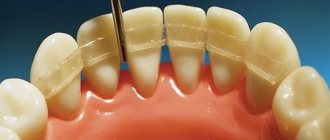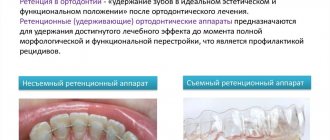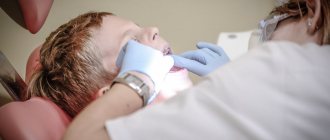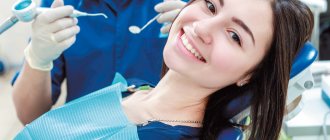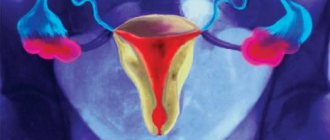What are the causes of the numerous problems with teeth and gums that expectant mothers suffer from? How can they maintain a healthy smile, and can they be treated by a dentist during pregnancy? We answer the most important questions about pregnancy and teeth.
Dentists at appointments often hear the same story from patients: “Doctor, my teeth started to fall out during (after) pregnancy.” Many women have the feeling that during intrauterine development the child “takes” calcium from the mother’s teeth, causing caries and gum disease.
In fact, this is a myth that has no scientific evidence. The calcium reserves necessary for the baby's development are not replenished by the mother's teeth. Why then do dental problems worsen during pregnancy?
What happens to teeth and gums during pregnancy?
Most often during this period, women complain of an exacerbation of diseases such as caries, gingivitis, and periodontitis. Each of them can lead to tooth loss if not treated promptly.
Toxicosis can also become a catalyst for carious processes. Nausea and vomiting, as well as changes in eating habits (large amounts of carbohydrates) cause disruption of the acid-base balance in the oral cavity, demineralization of teeth and the development of caries. If you do not sanitize the oral cavity before pregnancy, even minor carious lesions can turn into large lesions within nine months.
During pregnancy, hormonal levels (estrogen and progesterone levels) change and immunity decreases, which can lead to disruption of the gums' response to plaque formation. By leaving ordinary plaque unattended and untreated, you risk causing it to degenerate into tartar, which can damage the entire tooth.
Plaque also causes the development of gingivitis, an infection of the oral mucosa that causes swelling, redness, and bleeding of the gums. Due to altered hormonal levels, any inflammatory reaction in the body of the expectant mother is more violent, which is why the disease is otherwise called “hypertrophic gingivitis” or “gingivitis of pregnant women.” If it is not cured, it can develop into periodontitis, which means that gradual resorption or loss of bone tissue, suppuration of gum pockets and tooth mobility will be added to the listed symptoms.
However, it is still not worth linking a sharp deterioration in oral health with pregnancy. If you maintained proper oral hygiene before pregnancy, regularly attended preventive examinations and had professional cleanings every six months, then all of the problems listed above will most likely not affect you.
It’s another matter if you have never removed dental plaque and have not treated caries. Even if they practically didn’t bother you before pregnancy, during pregnancy the previously “acquired” problems will most likely worsen.
Safety first
Perhaps you have been putting off visiting the dentist for a long time, and now a tooth that was not filled in time is beginning to make itself felt, but you are more concerned about how anesthesia may affect the development of the fetus. There is no need to worry: according to researchers, dental treatment using local anesthesia with modern safe drugs can also be performed on pregnant women. Unfortunately, too many expectant mothers avoid dental treatment because of a perceived threat. Don't join their ranks.
During pregnancy, the risk of tooth decay increases, and there are several reasons for this. Women begin to consume more carbohydrates; due to toxicosis, the acidity of the oral environment increases; against the background of hormonal changes, gum bleeding increases. It is paradoxical that pregnant women are in no hurry to consult a dentist with these problems, when it is his help that they so need.
Can a mother’s “dental” diseases affect the baby’s health?
Sick teeth and inflamed gums are a source of infection for the entire body. From the carious cavity, microbes can penetrate through the root canal into the blood and even provoke disturbances in the functioning of internal organs (heart, kidneys, etc.).
In addition, recent studies suggest that premature birth and the birth of low-weight children may be associated, among other things, with gum disease - an infection in the mother’s body can adversely affect the child’s health. Therefore, preventive dental examinations are extremely important for the health of both the child and the mother.
Nutrition and vitamin intake to maintain dental health
The need for vitamins during pregnancy increases by approximately 1.5–2 times, which is due to the intensification of metabolic processes in the mother’s body and the use of some vitamins to meet the metabolic needs of the growing fetus. Mineral metabolism also changes: calcium and phosphorus in the pregnant woman’s body begins to pass to the fetus. As a result, a woman’s blood becomes deficient in them, which affects the condition of the hard tissues of the tooth [2].
Vitamin preparations can cause unwanted effects, and some of them have a potential teratogenic effect, so they should be selected together with a doctor [3]. For prevention, vitamins are used in doses close to the daily intake norms [1, 3].
It is important to reconsider the content of the diet - limit the consumption of sweet foods, giving preference to healthy foods rich in proteins, vitamins and minerals. It is worth increasing the amount of dairy products - sources of calcium, as well as eating more fresh vegetables and fruits [3].
When to visit the dentist and what procedures are allowed?
The best option is to solve all dental problems and have professional cleaning done in advance, before planning a pregnancy, in order to minimize possible risks. But if you have started the situation, and dental treatment during pregnancy cannot be avoided, then you should remember the precautions.
Thus, in the first and third trimesters, you should limit yourself to only urgently necessary procedures, be sure to consult with your gynecologist about anesthesia or taking medications. Based on these recommendations, your dentist should determine the need for hygienic teeth cleaning and therapeutic treatment in the first trimester.
The safest time for dental treatment is the second trimester (14 to 26 weeks). At this stage, all manipulations can be carried out - taking precautions, of course. However, if possible, it is better to avoid introducing pharmaceutical drugs into a woman's body.
During pregnancy, it is highly recommended not to undergo procedures such as implantation and prosthetics, resort to surgical treatment, or remove tartar. This is due to the use of anesthesia.
Women are allowed to treat caries during pregnancy and periodontal diseases, inflammatory processes in the gums and teeth, tooth extraction (non-surgical), and installation of braces (if there is no tooth mobility).
Procedures that should not be done
- Installation of veneers or aesthetic fillings
Although it is not considered a risky procedure, it is nevertheless not recommended. The reason is that any medical interventions during pregnancy should be carried out only when indicated. Aesthetic problems can be solved after the birth of a child.
- Whitening
The reason is the same - the procedure is not therapeutic - it can be postponed until later. In addition, now all medical drugs and equipment are certified; for this purpose, studies are carried out, in which pregnant women usually do not participate. Therefore, there is a formal ban.
- Treatment by an orthodontist
It would seem that wearing braces while on maternity leave is a great idea, because you don’t have to go to work or communicate with colleagues. But in fact, many orthodontists are against this decision. Firstly, during pregnancy and subsequent breastfeeding, bone tissue density may temporarily decrease and the course of treatment will differ from the standard. It is difficult to predict this, so to some extent such a procedure is risky. Secondly, immediately after the birth of a child, a woman cannot always leave him to go to the clinic for an appointment on the appointed day. And it is very undesirable to postpone visits to the orthodontist - it is not recommended to violate the treatment schedule.
It is much easier to choose clear aligners that are invisible to others, and undergo treatment when it is truly convenient for you.
There is no need to “hide” with aligners; the treatment goes unnoticed by others
Thus, the general opinion of dentists is:
- Treatment should be carried out before pregnancy or after 12 weeks.
- Do not put off treatment until later.
- On the contrary, all aesthetic procedures can be completed after the birth of the baby.
Other articles:
- What is more profitable – aligners or braces?
- Reflections braces - their advantages
Is it possible to have x-rays and anesthesia during pregnancy?
Many experts, including those from the American Dental Association, note that if you can avoid X-rays during pregnancy, then it is better to play it safe and refuse this type of diagnosis. The same applies to anesthesia.
However, if x-rays and anesthesia are still necessary, you should resort to them in the second trimester, because in the first trimester, the formation of the baby’s vital organs occurs, and in the third, it is already physically difficult for a woman to perform any procedures. When choosing an anesthetic drug, your dentist should choose anesthetics with minimal amounts of epinephrine.
As for x-rays, the type of examination officially approved for pregnant women and nursing mothers is diagnostics using a dental computed tomograph. The radiation exposure in this case is minimal. In addition, the device gives the doctor the opportunity to accurately identify problems at the earliest stages of diseases, which helps to avoid diagnostic errors and complications.
Advertising
Secretly around the world
Announcing your pregnancy can be difficult and is certainly a sensitive topic. However, you should not have secrets from doctors. This rule also applies to the dentist. Although many couples choose to wait until the second trimester of pregnancy to share the good news with family and friends, you should tell your dentist that you are expecting a baby right away at the beginning of your appointment. In addition, you need to tell him what medications or vitamins you are taking. If necessary, your dentist and therapist will coordinate their appointments.
How to care for your teeth during pregnancy?
- Limit your consumption of carbohydrates and sweets - they provoke tooth decay.
- Replace sodas with water or low-fat milk and fruit juices with fruit.
- Brush your teeth with fluoride toothpaste and floss twice a day. Special pastes with sage, chamomile, and mint, which have an anti-inflammatory effect, are also effective.
- For frequent attacks of nausea and vomiting, chewing gum without sugar or with xylitol will help you, as well as rinsing your mouth with a soda solution after an attack (1 teaspoon of soda per glass of water). This will neutralize the negative effects of acids on enamel.
So, so that diseases of the teeth and gums do not overshadow the most important period in a woman’s life, you should prepare for it in advance - go to the dentist, get rid of caries and inflammatory gum diseases, and also regularly undergo professional hygienic cleaning.
Contraindications to teeth cleaning in the clinic
Some doctors list pregnancy as a contraindication, but this applies to a specific number of procedures. Dentists at the Planet of Childhood clinic in Moscow select a cleaning method for expectant mothers that cannot harm their health and the health of their future children.
However, if a pregnant woman has the following diseases, then professional cleaning is prohibited:
- epilepsy;
- venereal diseases;
- infections that are transmitted by airborne droplets;
- diabetes;
- allergies to certain substances and drugs;
- asthma;
- hepatitis;
- HIV;
- Chronical bronchitis;
- any cancer;
- presence of a pacemaker implant.
Before allowing or prohibiting a pregnant woman from having professional teeth cleaning, the doctor must conduct an examination. So, you definitely need to take a blood test: even if you do not have diabetes, but your sugar levels are elevated, it is better to refuse cleansing.
Cleaning for pregnant women never implies subsequent teeth whitening, since this will have to be postponed until the moment when the woman not only gives birth, but also stops breastfeeding.
I feel what I feel in my teeth
During pregnancy, it is especially important to eat right.
However, if hot and cold dishes cause severe aching pain, appetite disappears, in this case at least two suffer (mother and fetus).
The problem of increased tooth sensitivity is associated with the thinning of the enamel, which, like a shell, covers the underlying dentin, enveloping the vessels and the actual sources of pain - the nerves. The appearance of pain is an impetus that forces you to go to the dentist. There may be several reasons for thinning enamel. One of them, the most common, is the loss of calcium by the enamel, as a result of insufficient intake from food and increased consumption by the body. Another reason is early toxicosis, which was already mentioned above. Another reason that is not related to pregnancy, but does occur, is the wrong choice of toothpaste.
Toothpastes of the “Sensitive” type have been developed especially for those with teeth with increased sensitivity.
According to dentists, the most common cause of tooth sensitivity is improper brushing.
To learn how to properly brush your teeth, you must contact a dental center. Training is carried out individually in one session. The cost of this procedure is about 300 rubles. As a rule, the dentist invites the pregnant woman for a follow-up cleaning. To assess whether the patient is coping with the task correctly or not.
Tooth sensitivity can be caused by cervical caries, when a hole in the tooth is located at its base, next to the gum. Then the solution to the problem is only a filling in the problem area. If tooth sensitivity does not decrease, despite all efforts, then “Sensigel” will help, it contains special substances that reduce tooth sensitivity. The cost of the drug is 180-190 rubles. The dental office has pharmacological agents to reduce tooth sensitivity that have a prolonged effect (up to 6 months), but the cost of the procedure is much more expensive.
Regular toothbrush or electric?
During the first half of pregnancy, a medium-hard toothbrush is suitable. By the third trimester, it is better to choose a soft brush, as this will avoid bleeding gums. Of course, unless there is a tendency to form hard plaque.
If you are used to using an electric toothbrush, then it is better to put it aside during pregnancy and use it only occasionally. Undoubtedly, the electric miracle removes plaque better. However, it has a greater traumatic effect on the gums than a regular toothbrush, and the gums are perhaps one of the most vulnerable places in a pregnant woman’s mouth.
If you really want to thoroughly clean your teeth, leave this procedure to a professional. Cleaning your teeth at the dentist's office will cost about 1,000 rubles.
“Tooth rash” after childbirth?
I hope that the child was not born in pain? In order for the child to grow and develop quickly, nature provided the woman with a source of nutrition for the baby - milk. Constant production of a nutritious product is possible only with a regular supply of necessary vitamins from outside. If the teeth have withstood the stress of pregnancy, this does not mean that the feeding process will go unnoticed. It happens that during feeding, teeth simply “melt” before our eyes. What's happening?
Apparently, there is a lack of calcium (or fluorine) in the body. In order to prevent possible destruction, it is necessary to ensure a sufficient supply of minerals, taking into account the consumption for the formation of milk. The mammary glands produce about a liter of milk per day (or even more).
I don't want to eat, but my mouth is watering
During pregnancy, drooling is common. This type of toxicosis does not pose a threat when it is moderate. Sometimes drooling is a consequence of uncontrollable vomiting. When it takes on a grandiose scale, solivation can reach 1 liter per day.
In this case, the appetite is impaired, the patient loses weight, her health worsens, and the patient must be admitted to a hospital. Treatment is necessary to avoid significant fluid loss. Moreover, with severe salivation, maceration of the skin around the mouth occurs, which can become an entry point for infection.
Some toothpastes have astringent properties: “Localut”, “Oral B”, etc. To prevent irritation, apply a rich cream to the facial skin. X-RAY
Rotten tooth! Delete or wait?
Elena K.: “Before pregnancy, I had very bad teeth, some required removal, and I didn’t have enough time and courage to go to the dentist. Now that I'm pregnant, I'm afraid of being completely without teeth. What is the best thing to do?
Due to the environment, not everyone can boast of healthy and white teeth, especially those with average and low incomes. So if pregnancy threatens to deprive you of your last teeth, you need to take immediate action. Remove all rotten, damaged teeth that cannot be restored. Firstly, this will eliminate the source of infection from the mouth, and secondly, diseased teeth tend to worsen during childbirth. And then you may have to give birth in the dentist’s office with an acute toothache.
Thanks to the development of new anesthetics that do not pass through the blood-placental barrier, removal will not be a particular problem. New drugs “Ubistezin” and “Ultracain DS” will provide fast and reliable anesthesia.
The safest time for tooth extraction is the 3-6th month of pregnancy.



